#32: I think I can. I think I can. I think I can.
It’s time to rewrite, and rewire, the narrative of suffering and struggle.
Happy Saturday, dear reader! Before we dive into the newsletter, I’m excited to share a guest post I wrote for the Experience Camps for grieving kids blog about Why We Cancelled Father’s Day. While the title might raise eyebrows, it’s an exploration of personal freedom in the face of tradition, and not being afraid to design your life to work for you rather than against you. I hope you enjoy it!
On to today’s post…
Free & paid subscribers receive the exact same weekly content in their inboxes every Saturday morning. (The newsletter, vulnerable, personal, embarrassing stories, book recommendations, and whatever gifs have made me giggle.)
Considering upgrading to help myself and my editor Leona dedicate more time to The Luminist and support our current non-profit of choice: Experience Camps for grieving kids.
I hadn’t gotten 20 pages into The Expectation Effect:
How Your Mindset Can Change Your World by British science writer David Robson before my head was spinning.
One quote in particular, from Stanford psychology professor Alia Crum, made me put down the book and look around at reality with new eyes… “Our minds aren’t passive observers simply perceiving reality as it is; our minds actually change reality. In other words, the reality we will experience tomorrow is in part a product of the mindsets we hold today.”
Hold up. Come again? Our minds and mindsets actually change reality?
Looks like it! But it often actually works against us, rather than for us…
Quoting study after study, professor after doctor after research director, Robson shows that our brains are ‘prediction machines’ that constantly simulate the future using past experiences, contextual clues, and our five senses. This may sound like an infallible combo platter of inputs, but buyer beware! Robson’s analysis of the research suggests that our brains are both limited in their data collection and subjective in their interpretation of that data.
Then add the brain’s certainty that it’s crunched all the data perfectly, and you’ve got a version of revisionist history that not only mucks up causation and correlation of the past, but imprints it on the future.
It’s like Drunk History (haven’t seen it? Well worth a giggle!), minus the cue cards off-screen, plus fortune-telling… disguised as scientific prediction.
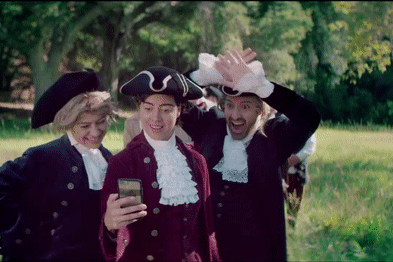
And we are very very susceptible to thinking that our thoughts are true. (Even though we are all regularly thinking ludicrous things like “everyone hates me”, “my haircut makes me look fat”, and “this $500 pantsuit is going to save my career.”) So our thoughts become self-fulfilling prophecies — whether it’s because:
our confirmation bias causes us to see what we expect to see (other people having better luck/opportunities/friends/haircuts/suits than us);
we actively spend our energy preparing for the expected outcome, rather than making space for the opposite to happen;
our body literally changes its physiology to match our expectations (it’s WILD, read the book to learn more);
or any combination of these.
In other words, worst-case thinking doesn’t prepare you. It promotes the worst case.
Perhaps Oliver Burkeman of The Guardian describes it best when he shares, “I’ve always been fond of ‘defensive pessimism’: keep your expectations low, and you can only ever be pleasantly surprised. But this approach defines our expectations as wholly impotent: vain hopes that reality might or might not deign to fulfill. The Expectation Effect shows that, on the contrary, our expectations participate actively in that reality.”
Luckily, our brains are so terrifyingly all-powerful that old, limiting expectations have an easy antidote: new, updated expectations.
Robson shares that one way we can rewire our prediction machine
is through ‘exposure therapy’ — confronting our fears to rewrite the script on what happens when we come face-to-face with a snake, a shark, or the death of our spouse.
And no, you don’t have to lose your spouse like me to practice.
In my early grief days, I plunged into weekly Amazon cardboard boxes and white bubble envelopes for the next installment of my personally curated grief canon. I started reading because I was desperate to feel less alone, but all these books had a surprising outcome. Over and over I read the words of people who had suffered unimaginable loss… and then had put Humpty Dumpty back together again in the form of new lives and new loves.
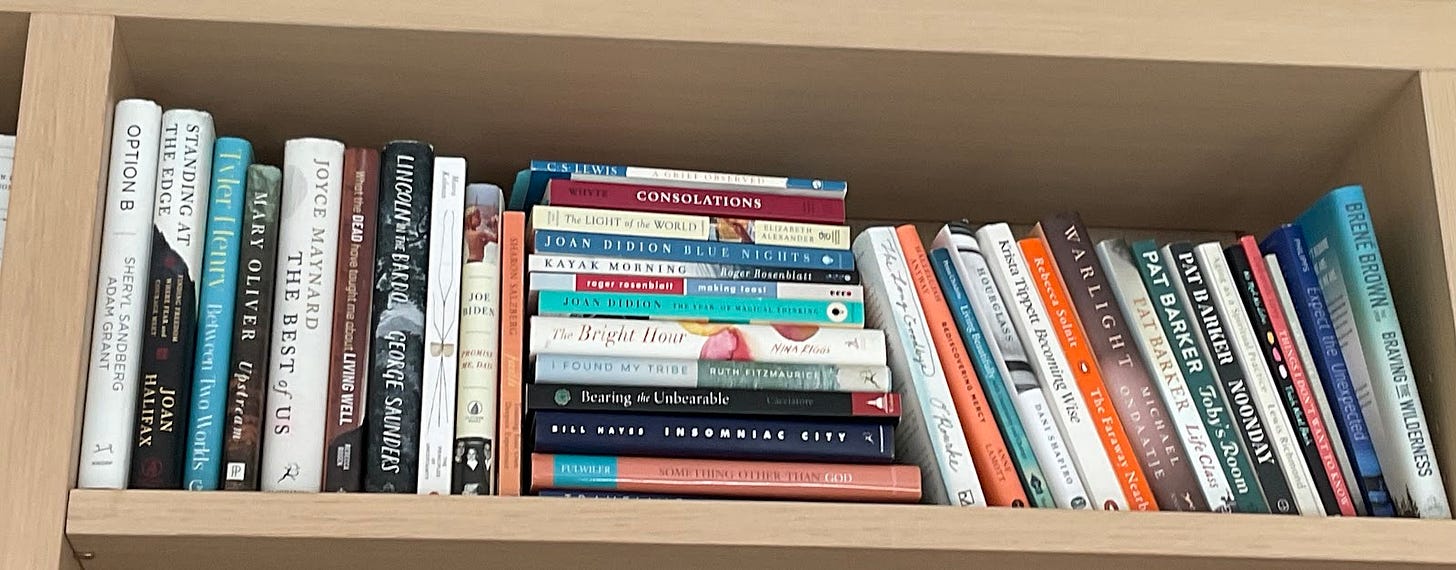
Turns out loss isn’t the end. Sometimes it's even the beginning. But often it's just the middle of a life shaped by many things.
Yet most people have no clue that life is actually still worth living after a terrible loss because society avoids the subject… Our prediction machines only get input from our own catastrophizing imaginations and 60 Minute specials about the worst things anyone has ever heard of.
So, reading The Luminist — or
or or — is a form of exposure therapy for you, dear reader. An exercise in recalibrating your prediction engine. You read about the kids and I, or Sandra Ann or Chris or Katie, coming out the other side — maybe a little rougher around the edges, but also happily giving less of a crap about those “rough edges” and more authentically enjoying our lives. And your brain gets a new data point: “Oh, that was terrible, but look! She/he/they are thriving — it's possible!”Like sore muscles after a workout that turn into stronger biceps a few days later, that ache we feel from absorbing stories of someone’s sadness turns into self-confidence through practice. We realize we can do it — we can go through the hardest of things and after a time come out vital, passionate, present, and very much alive.
And our brains start to predict and implement a new future…
(Robson also mentions how ‘social contagions’ get incorporated into our prediction machines. So I plan on using social contagion for my own evil purposes… I want to spread the idea, for the idea to go viral, that loss is actually part of a life well-lived! Mwahahaha!)
Quick sidebar: I think it’s worth noting the difference
between having constructive and productive expectations, and being so attached to our expectations that we crumble into inconsolable dust when they aren’t met.
The former involves another expectation — unspoken but essential — that we will be ok if our expectations aren’t met. We will make space to process the disappointment. We will remember that disappointment happens to everyone — it isn’t the universe telling us we’re doing it wrong or are a terrible person or anything like that.
Sure, maybe we will take a moment to pause and make sure our inner compass is pointing straight and true… and then we will keep chugging along towards our goals, hopes, dreams. Because they are worth a stubbed toe or ten.
In other words, our prediction machines come to read “failure” as a cue to learn, reorganize, and set out again. Not to give up.
Stories of tragedy don’t just teach us to survive our own.
We learn to console better as well. To dare to hope for a smile-filled future for those around us who are struggling.
(Which is not the same thing as toxic positivity. Robson explains that the expectation effect has nothing to do with labeling unpleasant emotions or sensations “bad” and then doggedly rejecting and avoiding them.
In fact, that strategy can lead people to get stuck in a downward spiral of negativity because they feel bad for feeling bad. A “nocebo,” or harmful placebo, as Robson calls it. Harnessing the productive power of expectations is not about judging where you are but about holding space for a desired outcome in the future.)
We visited such an example back in post #14: “Things will be great again.” Brave words from a dear friend who loved Mike and loved our family and was heartbroken over his death… But wasn’t going to let anyone’s misaligned prediction machine (including my own) hold the kids and I back from all life had to offer.
It’s deeply affirming to have neuroscience backing up what I felt in my bones after Wayne’s words had fully set it.
We need others to hold high hopes (even expectations) for us when we can’t hold a freaking glass of water on our own.
Yeah, yeah, yeah, being able to reverse aging
(as covered in Robson’s book) is really cool and all. But what truly drives me to write this post is the thought of suffering piled on suffering… for those who are already going through the worst time of their life and are then told, literally or subliminally, by their loved ones, by their friends, by society that they will never recover. That life will never be great again.
Can you imagine what would happen if you believed that?? I can feel my cells deciding on the spot that metabolism just isn’t worth the trouble anymore.
As consolers, we can never assuage the sharp, searing pain of losing your special person, your health, your job, your home. What we can do — what we must do — is not add a single straw of negative expectations to that load. And when possible, take off any other straws that have been left there too.
In my earliest days of grief, I had two kids to survive for and an admittedly belligerent disposition that had always been ignited by smashing others’ expectations. While these things helped, I don’t feel I would have thrived without that simple sentence from a beloved friend. Those five words engaged the expectation effect, rewired my prediction engine, and sent me on the path towards making the most of my one wild, grief-stricken, and still precious life.
Thanks again, Wayne. You changed my life. And maybe hundreds of others through the TL mission.
Looking back, I think it helped that my prediction machine
was already totaled and ablaze from Mike’s unpredictable heart failure (the guy ate exclusively salmon, spinach, and blueberries for Pete’s sake!).
So maybe, in a weird way, loss is the perfect time to rewire (or fully trade-in) your expectations.
Maybe it’s a moment to embrace that we understand so little of the mysteries that rule death and life, we might as well see what we can get away with.
Like being bold enough to believe that we can make it into the Top 10 of Britain’s Got Talent with our acrobatic salsa act… at age 80.

With high expectations,
Sue
P.S.
If you’d like a song vibe that aligns with this post (we’re going for a holistic approach here at TL), check out Breath (Lenno Remix) by Seinabo Sey.
Sey sings, “When you believe in your future, it’s different.” Amen to that!
P.P.S.
If you liked this post, you might also be interested in:
#22: The resilience experiment. If you can learn from “failure” without self-judgment, you can be resilient.
#14: Things will be great again. Giving each other permission to believe in the future while honoring the pain of the present.
#2: Why I wouldn't trade away the grief. While I would give anything to have my late husband back, my life is more vibrant, more meaningful, more miraculous thanks to the lessons of grief and loss.


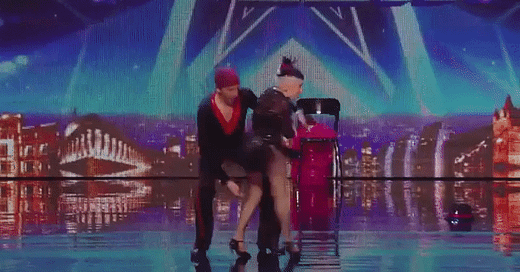

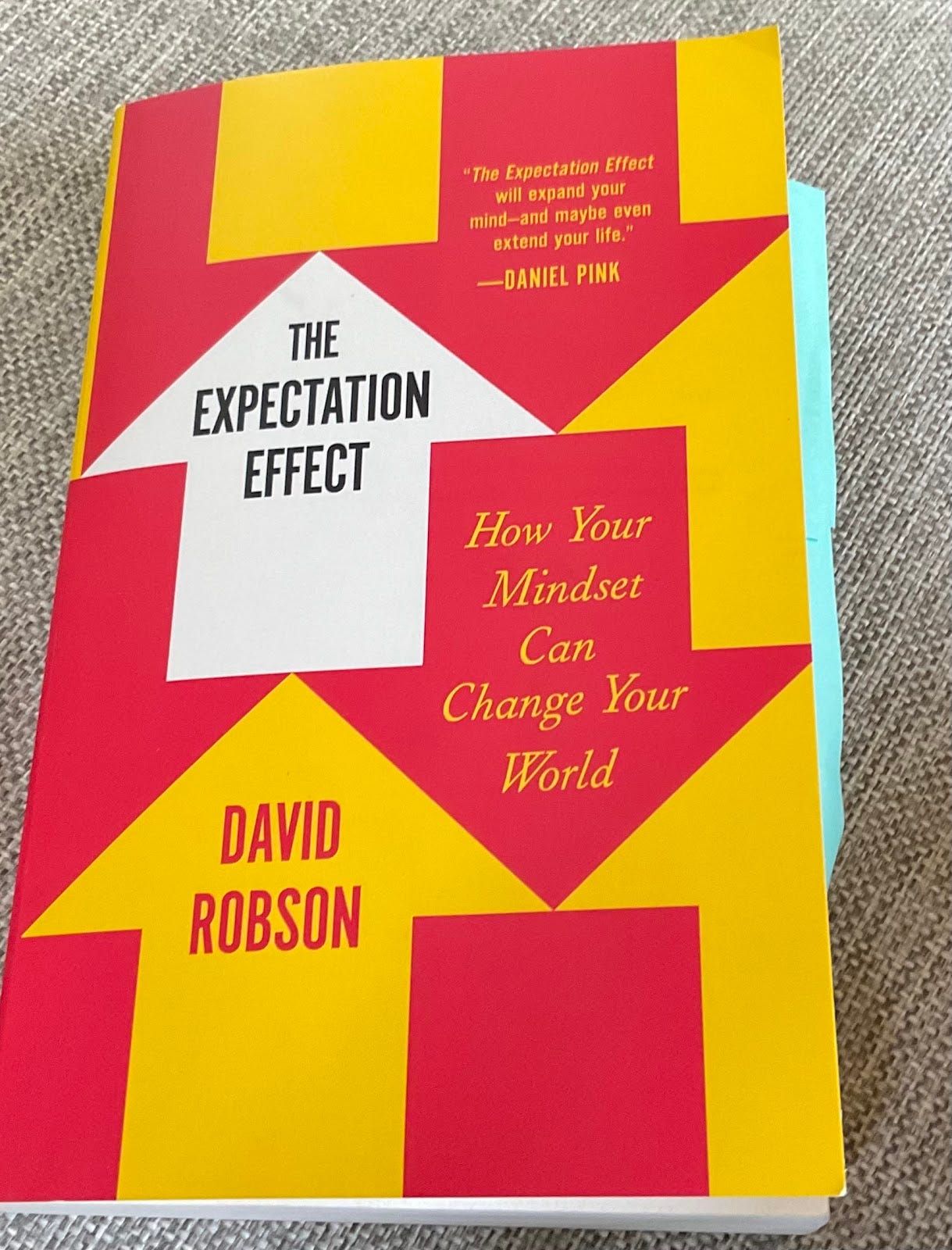

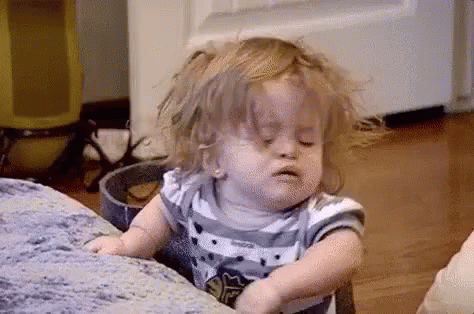
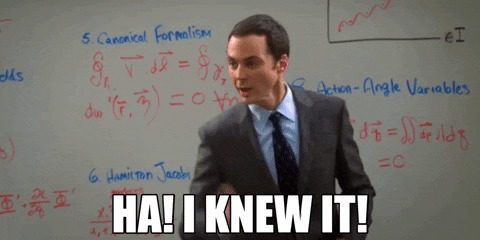

Yes to all of this! (And thanks so much for the kind mention.) And, YES, you get to cancel Father's Day or any other holiday you need to in order to be true to you, your heart, your feelings, and your loved ones. We have to live our lives on our terms, and maybe show others how it can be done. Life is hard. We don't need to do things that make it miserable. You rule, Sue. Keep going. xo
While I did not lose a person, I lost myself. Or who I thought I was because of the loss of a career and a life I spent building it.
Your post resonated. In my writing today, I describe being ready to to embrace the new life that awaits. And I’m re-wiring my thoughts to get there.
I think I can! I think I can! Nah, I know I can. :)
Ps. I love those stacks you mentioned too!